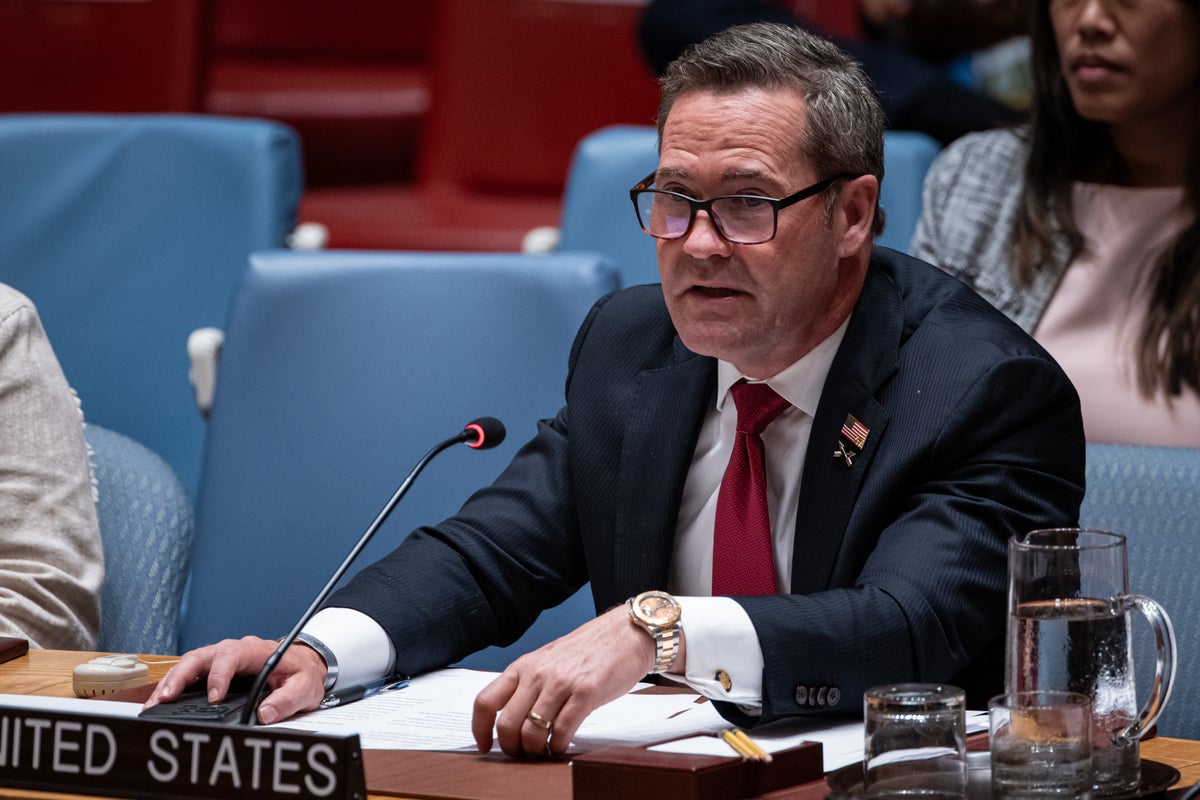
U.S. Ambassador to the United Nations Mike Waltz was interrupted during a speech this week and called out for his involvement in a leaked Signal group chat.
Waltz spoke to the United Nations General Assembly on Tuesday, ahead of a vote on a resolution to condemn the U.S.’s economic restrictions on Cuba. As Waltz defended his nation’s position, Cuban Foreign Minister Bruno Rodriguez interrupted his speech with a “point of order,” and slammed the ambassador’s remarks as “uncivilized, crude and gross.”
He then appeared to call out Waltz’s involvement in a group chat with other Trump administration officials on the messaging app Signal, which was leaked earlier this year.
“Mr. Waltz, this is the United Nations General Assembly,” he said. “It is not a Signal chat. Nor is it the House of Representatives.”
“I am well aware of the location in which we are speaking,” Waltz responded. “And this is also not a communist illegitimate legislature in Havana.”
In March, The Atlantic’s Editor-in-Chief, Jeffrey Goldberg, reported that Waltz mistakenly added him to a group chat on Signal. There, Trump administration officials — including Vice President JD Vance and Defense Secretary Pete Hegseth — appeared to be discussing plans to strike Houthi targets in Yemen, Goldberg reported. Waltz was serving as President Donald Trump’s national security adviser at the time.
Waltz has maintained that no classified information was shared, and claimed in July that Signal was “recommended” for use by former President Joe Biden’s administration. Hegseth similarly defended the chat, telling reporters at the time, “nobody was texting war plans.”
In May, Waltz was removed from his role as national security adviser and instead nominated to serve as ambassador to the United Nations.
In his United Nations speech this week, Waltz described the assembly’s resolution as “political theater” and accused the Cuban government of painting itself as a “victim of aggression while plainly describing itself as ‘the enemy of the United States.’” Waltz also objected to the terms “embargo” and “blockade” to describe the nation’s restrictions on Cuba.
“The United States has always – always allowed Cuba to import food, to import medicine, and to import humanitarian goods,” he said.
A day later, the United Nations voted to condemn the U.S.’s economic embargo on Cuba for a 33rd year, the Associated Press reports. This year, 165 countries supported the resolution, while seven countries voted against it and 12 abstained. Last year, 187 countries supported the resolution. The resolution isn’t legally binding, but reflects the opinion of the countries that voted.
Rodriguez told the Associated Press this week that the resolution “is not binding, but it is powerful.”
“We cannot underestimate the importance, the impact, of the powerful message year after year by the General Assembly, which is the most democratic, representative body of the international community,” he said.
This year’s vote came as Cuba was battered by Hurricane Melissa, a record-breaking storm that has claimed at least 30 lives in the Caribbean as of Wednesday evening.
The Independent has contacted the State Department and the Cuban Foreign Ministry for comment.
